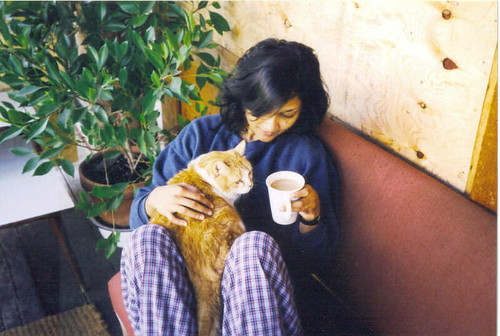eggs, wyau , muttai, huevos...

Usually, "free-range" conjures up images of vast farm lands, fields, meadows where the animals roam free, do what they please, and possibly allow their human friends to share what they produce, like eggs, milk and so on.
Historically, the term "range" means, in addition to living outside and getting exercise, the animals are able to sustain themselves on the land on which they are living.
The more I read about de-beaking, confinement of hens, and termination of roosters who have no commercial value, the more terrible I feel about buying commercial eggs.
Birds raised in the United States for meat - mainly chickens and turkeys - may be sold as "range" if they have U.S. Department of Agriculture certified access to the outdoors. No other criteria, such as environmental quality, size of area, number of birds, or space per bird, are included in this term. [United Poultry Concerns (UPC)]
I don't eat meat, however I do cook chicken for D on and off. But I do cook eggs and eat eggs.
Of late, we have been getting our eggs from a colleague who raises a few hens and chickens. Just a handful. So, the egg supply is small. Maybe once a month we get a couple of dozen or so from this colleague, at a price slightly more expensive than supermarket, but, a price we are willing to pay, knowing that the hens are not mutilated or confined, and are fed good food.
Eventually, of course, they are probably going to be slaughtered and eaten. Such is the Cycle of Life. Food Chain. Whatever you want to call it.
However, the belief that free-range hens, when allowed to roam and peck at will, would produce tastier (and possibly healthier) eggs seems to have some validity: the farm fresh free range hen eggs I have cooked up seem to taste better to me than the commercial supermarket ones. They don't have the slightly unpleasant odor and after-taste that I call "eggy", despite D giving me a hard time about my coining of the term.
The eggs are not all the same size and same color either, which makes them very interesting. The eggs pictured above are anywhere from greenish gray, to brown to off-white, and varying in sizes.
While it is sadly, deplorably true that industrial poultry/meat production is not going to conform to any free-range standards, knowing the producer, and possibly remaining vegetarian can help make a difference...
Labels: food, general banter


0 Comments:
Post a Comment
<< Home